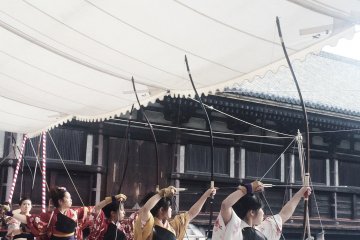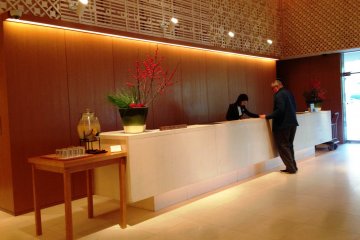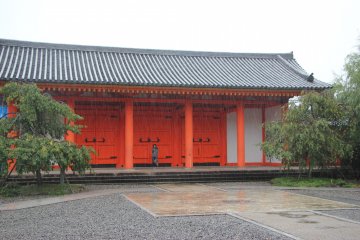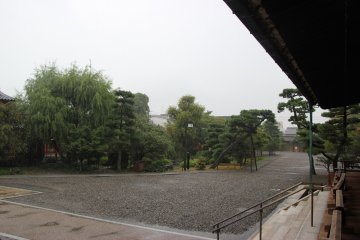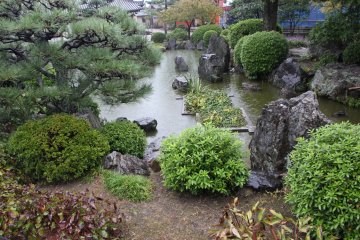If you are in Kyoto, you should definitely visit Sanjusangendo temple. It was the second time when I visited this temple; I was so impressed by what was inside the building and by this building itself two years ago that I promised myself to come back here again.
Sanjusangendo Temple is also known as the temple of 33 spaces (Sanjusan means "33" in Japanese ), though its official name is Rengo-in. Its hall is Japan's longest wooden structure and consists of 35 columns that divide the building into 33 parts. Moreover, the number 33 has a sacred meaning. It is believed that the goddess Kannon, to whom the temple was dedicated, can take 33 different forms.
When approaching to the temple, I noticed a lot of small groups of students led by teachers. An excursion to Sanjusangendo is included in many school programs, and it's much more effective to study history and architecture directly at this place than at a school desk.
The temple was built in the 12th century. There are 1001 statues of thousand-armed goddess Kannon inside:1000 life-size statues and one large 3.4-meter high statue created by Tankei - a legendary sculptor of the Kamakura period. It is astonishing that all the statues are different: they have different facial features, they hold different objects in their hands. The statues are guarded by 28 gods; you become seized with holy awe when looking at them. It seems that they look fixedly and are about to start moving. Each statue of the deity has a description in English, which is, however, difficult to understand if you are not aware of Buddhism and Hinduism. Rows with thousands of statues give an indescribable impression: it's breathtaking to realize their importance, grandeur and age. 124 statues, saved from the fire, are original and the rest were restored in the 13th century, and they are still in excellent condition.
I was walking in this temple very slowly, trying to see each statue of Kannon and the severe gods as carefully as possible. Along the passage there are candles and boxes where you can throw a coin and make a wish.
A little before reaching the middle of the hall, you can go to an open area which overlooks a beautiful Japanese garden and a hall built in honor of the 1200th anniversary of the first temple's opening on Mount Hiei (the religious center of Japan). At this place the visitors can rest, reflect on everything they saw and then go further.
This place is legendary for one more reason: here, on the western porch of the temple, the competitions of Japanese archery at 120 meters were held. After taking a look at the statues visitors enter the corridor which displays the samples of Japanese bows as well as images of the competitions and archers.
Sanjusangendo is one of the most famous samples of Japanese wooden architecture and attracts tourists from all around the world leaving them with an eternal memory of Kyoto.




